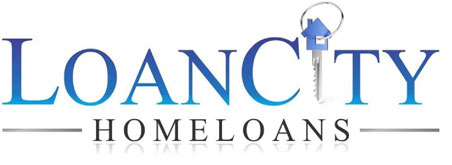Homepath Mortgage – a home mortgage with only 3% down
Homepath Mortgage – is a home mortgage without mortgage insurance requires as little as 3.0% down.  In 2009, Fannie Mae, formally known as the Federal National Mortgage Association, began offering HomePath loans and renovation mortgages. The purpose of these loans is to create an opportunity to quickly sell the thousands of homes that the agency repossessed through foreclosure. This is one of those programs that many buyers are unaware of, yet continues to grow in popularity. Often, a real estate broker or agent makes buyers aware of the program and explains its many benefits. How it works Before explaining the HomePath program, the buyer needs to understand how Fannie Mae works. Instead of directly lending money to buyers, Fannie Mae establishes guidelines that lenders are to follow if the lenders want Fannie Mae to purchase the loan after it is originated. For HomePath loans used to purchase a new house, for as little as 3 percent down lenders can finance properties owned by Fannie Mae if the buyer plans to occupy the home. In the case of an investor, the down payment can be as little as 10 percent. If the HomePath loan is to be used for renovating a house that requires either minor or substantial repairs, and the buyer intends to purchase the property, the amount of financing available is determined as 97 percent of the expected value of the home after the renovations or repairs are completed. A credit score of 660 is the minimum required if the borrower seeks a down payment of 3 percent. The web site where HomePath properties for sale are listed is homepath.com. There are literally thousands of homes listed on the web site, and the agency acquires properties through foreclosure every month. If you do not see a home that interests you, return the next month to continue your search. What are the advantages If you are a buyer that does not like competing with investors, the HomePath loan program locks out investors for the first 15 days the property is listed, provided that the homebuyer intends to occupy the house. Agents of Fannie Mae are prohibited from accepting any offers from investors during this 15-day period. Next, HomePath financing does not require an appraisal of the property unless the purpose of the loan is to renovate the house. The purchase price of the home is what is used to determine its value for loan purposes. Another advantage is that the property is not required to go through an inspection. Of course, for the prospective home buyer an inspection is an essential part of the home buying process. Though certain lenders may not require an inspection, the only way to know the condition of a home is to have it inspected by an independent contractor. The fact that the lender has no say in this part of the process is one less concern for the borrower.There are three concerns of mortgage lenders:
In 2009, Fannie Mae, formally known as the Federal National Mortgage Association, began offering HomePath loans and renovation mortgages. The purpose of these loans is to create an opportunity to quickly sell the thousands of homes that the agency repossessed through foreclosure. This is one of those programs that many buyers are unaware of, yet continues to grow in popularity. Often, a real estate broker or agent makes buyers aware of the program and explains its many benefits. How it works Before explaining the HomePath program, the buyer needs to understand how Fannie Mae works. Instead of directly lending money to buyers, Fannie Mae establishes guidelines that lenders are to follow if the lenders want Fannie Mae to purchase the loan after it is originated. For HomePath loans used to purchase a new house, for as little as 3 percent down lenders can finance properties owned by Fannie Mae if the buyer plans to occupy the home. In the case of an investor, the down payment can be as little as 10 percent. If the HomePath loan is to be used for renovating a house that requires either minor or substantial repairs, and the buyer intends to purchase the property, the amount of financing available is determined as 97 percent of the expected value of the home after the renovations or repairs are completed. A credit score of 660 is the minimum required if the borrower seeks a down payment of 3 percent. The web site where HomePath properties for sale are listed is homepath.com. There are literally thousands of homes listed on the web site, and the agency acquires properties through foreclosure every month. If you do not see a home that interests you, return the next month to continue your search. What are the advantages If you are a buyer that does not like competing with investors, the HomePath loan program locks out investors for the first 15 days the property is listed, provided that the homebuyer intends to occupy the house. Agents of Fannie Mae are prohibited from accepting any offers from investors during this 15-day period. Next, HomePath financing does not require an appraisal of the property unless the purpose of the loan is to renovate the house. The purchase price of the home is what is used to determine its value for loan purposes. Another advantage is that the property is not required to go through an inspection. Of course, for the prospective home buyer an inspection is an essential part of the home buying process. Though certain lenders may not require an inspection, the only way to know the condition of a home is to have it inspected by an independent contractor. The fact that the lender has no say in this part of the process is one less concern for the borrower.There are three concerns of mortgage lenders:
- Credit
- Capacity
- Collateral
Capacity is the ability of the buyer to pay the mortgage. A HomePath loan removes the collateral element from the equation because Fannie Mae already knows the value of the property being sold and its condition. Finally, the loan does not require mortgage insurance to be obtained. This is true regardless of the amount of the down payment. In contrast to an FHA or conventional loan, mortgage insurance is required unless 20 percent or more is put down on a conventional mortgage. HomePath Interest Rates HomePath mortgage rates are determined based on the amount you put down and credit score. Expect your interest rate to be higher if putting 3% down oppose to 5%. The more you put down up until you reach 20% down the lower your interest rate will be. However, the cost is offset by the mortgage insurance savings and a cheaper alternative to an FHA loan. When putting 20% down you can expect your rate to be the same as a 20% conventional loan.


 Twitter
Twitter Email
Email Facebook
Facebook Linkedin
Linkedin Google +
Google +